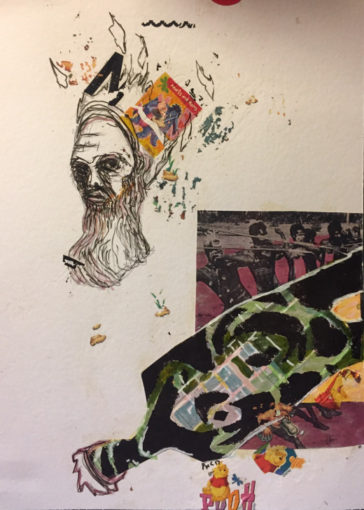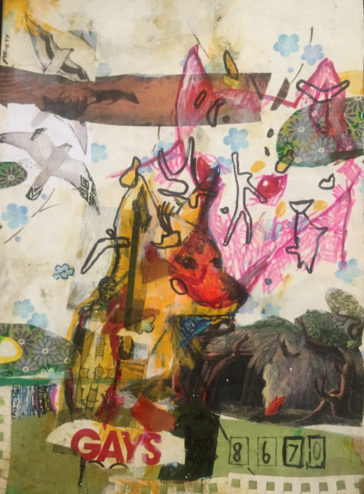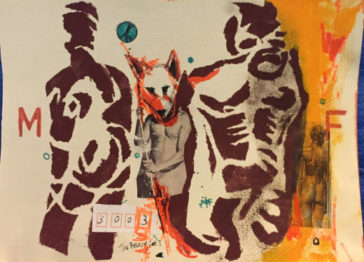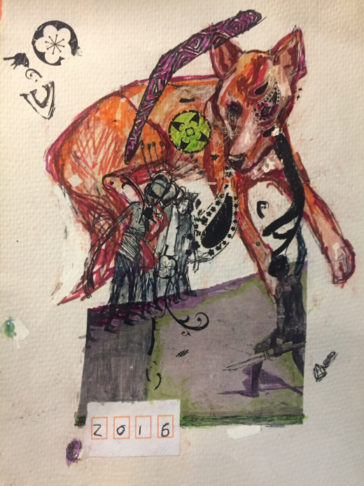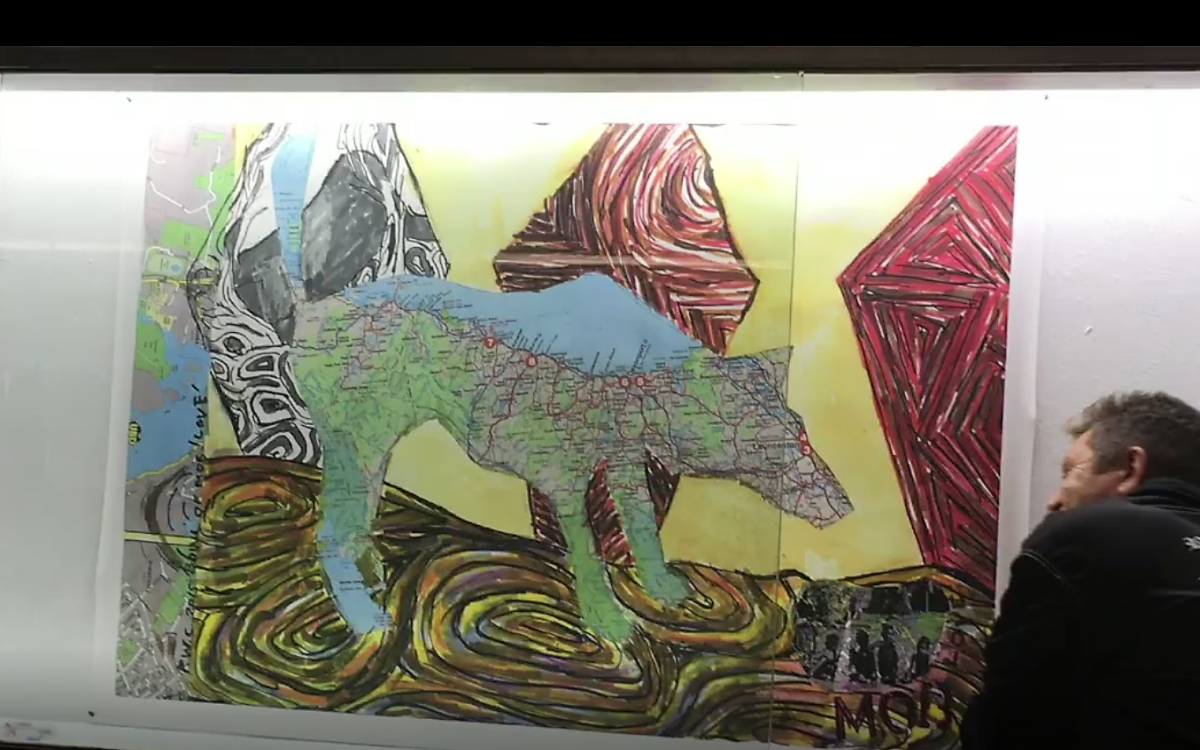
Peter Waples Crowe
Peter Waples Crowe is a Ngarigo queer visual and performing artist whose work has featured on the ABC, SBS Australia and Fairfax. Melbourne based, Peter curated the “Other Other” exhibition for Midsumma Festival in Melbourne’s West and held his solo exhibition “Dirty Dingo” in the CBD. Here, he talks with Margaret Mayhew and highlights the geographic and social isolation faced by artists who carry multiple identity labels.
I do a lot of dingos as an emblem of the marginalised Aboriginal person, because they’re a marginalised native animal.
Awards and collaborations
Peter has been a multiple finalist for the National Aboriginal and Torres Strait Islander Art Awards, the Victorian Indigenous Art award, and received the Koori Heritage Trust Acquisition Award. In addition to a successful solo career, Peter is notable for his collaborations with other artists; performing with Anna Leibzeit and Kaz Adams as post-punk apocalyptic disco group The Treaters since 2012. Recently he has undertaken collaborative works with non-Aboriginal artists, including Katie Jacobs and Ingrid Tufts for Dingo Spirit, which was a finalist in the 2017 Craft Victoria Awards. More recently his collaboration with textile artist Megan Evans has produced an exhibition “Squatters and Savages”, currently running at the Ballarat Regional Art Gallery. Peter’s work is an elaboration of a previous work “Just Sayin” which consisted of a reworking of the colonial images from the galleries print collection; diffracting the colonisers view of Aboriginal people with the mercurial wit of the constantly shifting negotiations of queer and black identities.
Community health and arts
Peter’s intersecting experiences as an Aboriginal queer man and his work with community health and community arts organisations such as The Torch and VACCHO has given him a unique perspective as a practicing artist and community cultural development worker. In this interview with Diversity Arts Australia, Peter highlights the issues of geographic and social isolation faced by artists who carry multiple identity labels. He stresses the value of partnerships and one-on-one close collaboration for developing a sense of trust and reciprocal communication between artists from marginalised communities and arts organisations. Peter endorses partnerships as a mode of sharing and reciprocity that facilitates the development of and dialogue with artists from marginalised backgrounds rather than their appropriated by more powerful institutions and organisations.

